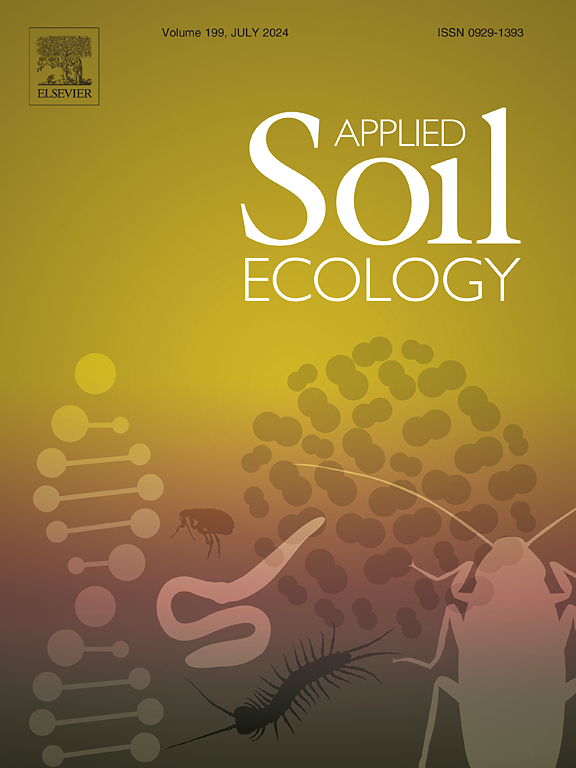Enhancing rice nitrogen use efficiency via plant-microbe-soil interactions: Insights from 15N tracing
IF 4.8
2区 农林科学
Q1 SOIL SCIENCE
引用次数: 0
Abstract
To improve crop fertilizer nitrogen use efficiency (NUE) for sustainable agriculture, it is important to understand plant-microbe-soil interactions. Here we use a 15N tracing technique to characterize the gross N transformation rates in rice-soil systems. We found that rice cultivation inhibited gross N mineralization (M) by 70 %, compared with the bulk soil. Gross NH4+ oxidation (ONH4) and gross NH4+ immobilization (INH4) in the rhizosphere were also significantly reduced. In contrast, gross heterotrophic nitrification (ONrec) significantly increased. Slow release of organic N and low NH4+ oxidation were beneficial for improving rice N absorption efficiency, reducing N loss in flooded paddy field. Rice NUE is mainly controlled by NH4+ uptake, while soil pH plays a central role in regulating the rice NH4+ uptake rate. The stimulation of ONH4 and INH4 due to rising pH had a negative impact on rice NH4+ uptake. NUE also differed with respect to the rice varieties. Rice NH4+ uptake accelerated with increasing M but was negatively correlated with INH4 and ONH4. Nitrate uptake, on the other hand, was positively correlated with ONrec but negatively correlated with INH4. Our analysis revealed that rice cultivars with high N uptake capacity can regulate the soil N transformation rates and microbial properties in the rhizosphere to meet their N demand. The negative correlation between rice NH4+ uptake and bacterial abundance also suggests that microbial competitiveness was declining. These results contribute to our understanding of agroecosystem with low N input by optimizing microbially-mediated soil N transformations.
求助全文
约1分钟内获得全文
求助全文
来源期刊

Applied Soil Ecology
农林科学-土壤科学
CiteScore
9.70
自引率
4.20%
发文量
363
审稿时长
5.3 months
期刊介绍:
Applied Soil Ecology addresses the role of soil organisms and their interactions in relation to: sustainability and productivity, nutrient cycling and other soil processes, the maintenance of soil functions, the impact of human activities on soil ecosystems and bio(techno)logical control of soil-inhabiting pests, diseases and weeds.
 求助内容:
求助内容: 应助结果提醒方式:
应助结果提醒方式:


